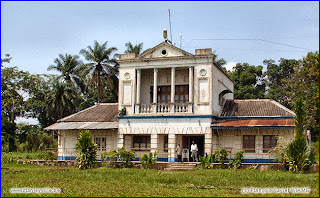The Republic Democratic of Congo, a land filled with
resources that shapes our modern world. In a country of more than 65 million
habitants, the Congo has emerged as one of the world’s most potent countries.
The Congo’s political puissance is almost inconspicuous; it
is however the business opportunity that keeps Africa’s second largest country
alive. Industries such as diamond, gold, copper, cobalt, coltan and zinc mining
are the reason of relevance. Regardless
of the mineral resources that attracts opportunists faster than an eye blink,
the Congo is regarded economically languid, and in consequence has become one
of the world’s poorest countries. This is a fact that echoes across Africa like
scream in an empty hall.
Many
have catechized why such a rich country is incapable of nourishing its people. It
almost seems like the mineral exploitations is failing the Congo, and there is
no much yielding for the Congolese people as the economy keeps sinking like the
titanic in a dark cold night. In addition to Congo’s financial outgrowth, there
are a number of ethnic battles now raging for more than 35 years. In the east
of Congo stands numerous UN peace keepers, mostly diploid from India and Pakistan
in their blue helmet and tanks. The white muddy tanks resting in city of Goma
signifies insecurity and instability, further destroying the economy, creating
a strong recession that leads to inflation, and causing aggression within the
population as they fight for possessions, slowing down progression as the
destruction persists.
Africa’s leaders can apprehend from the
western civilisation. After the fall of Europe during the World War 2,
differences were set aside and solutions were constituted. Strategically
understanding the importance of rebuilding what was destroyed became important
to them, as they formed the European Union (EU) which now consists of 28 member
states. A political structure was effectuated in order to reconstruct what was
destroyed and to help other European countries in turmoil. In boost of the EU
created after the World War 2, six countries in 1952 signed the treaty of Rome
which is an agreement that led to the founding of European Economic Community
(ECC) on the 1st of January 1958. It was through this organisation that the
European Atomic Energy Community was formed in co-operation with the European
Economic Community to developing a nuclear energy. It is this sort of
co-operation that has made Europe a powerful continent regardless of their
geographical size. This is the effort
and desire the African leaders must have in order to make significant changes. The
leaders of Africa must sing in harmony, walk choreographically in the same
direction, and take imperative actions in co-operation with other leaders just
as the Europeans did. These are the first steps that could prove preeminent
economically and be the rise of Africa.




No comments:
Post a Comment